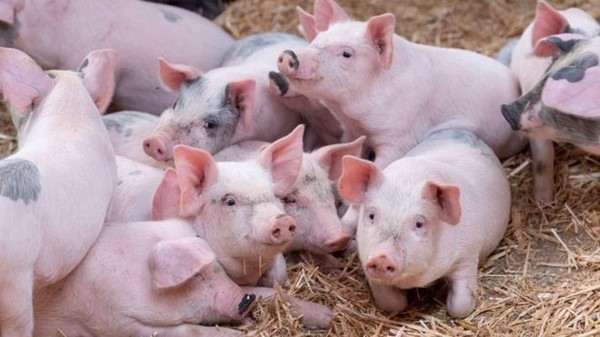
Pig Disaster1)
On September 17, a pig with African Swine Fever (ASF) was found in Paju, Gyeonggi-do, for the first time in Korea. African Swine Fever is an endemic disease in Africa and is a viral swine fever. The fatality rate of the disease stands at 100%, and there are no vaccines or treatments available worldwide. After a report of five pigs dying at a farm in Paju on September 16, samples from the pigs were collected at the Gyeonggi-do Sanitary Test Center. The samples were found positive for the disease at 6:30 a.m. on September 17. In response, “The Ministry of Agriculture, Food and Rural Affairs (MAFRA) slaughtered 3,950 pigs in nearby areas, including farms where the African Swine Fever was found,” said Kim Hyunsoo, Minister of MAFRA. MAFRA then issued a temporary suspension on all pig farms and vehicles entering and leaving the infected countryside areas for two days, which was carried out in cooperation with quarantine headquarters and local governments. Since the initial outbreak, a series of African Swine Fever outbreaks have been reported in Yeoncheon, Gimpo, Paju, and Ganghwa-do. The government responded with a nationwide suspension order at noon on September 24. A month later, on October 24, the number of pigs infected with ASF had been confirmed to be 14. Another series of the infected pig was then found in Paju and Yeoncheon with the outbreak reaching northern Gyeonggi-do.
The Ministry of Agriculture, Food and Rural Affairs speculates that a wild pig originating from North Korea, which was infected with ASF, somehow reached South Korea. The National Intelligence Service reported that “In May, North Korea reported an outbreak of ASF to international organizations, and there have been signs that the disease has spread throughout the country due to poor quarantine since its initial report.” The Service also stated that all pigs in Pyongan-do were slaughtered due to ASF. As the government agencies suggest, the disease seems to have reached South Korea from a wild pig that traveled South from North Korea. Both the North and the South’s farms suffered greatly due to ASF. More than 300,000 pigs were slaughtered to prevent the spread of ASF. Farms that suffered financially due to mandatory slaughtering of their infected pigs were compensated by the government. They received market value for each pig lost, but other farms that had their untested pigs slaughtered in order to prevent the spread of ASF received a lesser compensation, less than the market value per pig. In response, the ASF emergency committee has refused to accept the offered compensation amount until the government guarantees to pay proper reasonable compensation. Besides the economic damage, there is also the trauma experienced by workers and farmers who were mandated to slaughter the pigs. According to a 2017 survey by the NHRC, 268 government officials and veterinarians who participated in the obligatory animal killings were found to suffer post-traumatic stress disorders (PTSD). Veterinarians are in the business of saving the lives of animals, but they were required to kill the pigs efficiently and quickly. Staff employed to aid in the slaughter feel guilty. To help them, the government is now providing trauma prevention education, but the training does not fully cushion the impact felt by workers. In other words, ASF is not just a disaster for pigs. It is a disaster for humans as well. Effort is needed to prevent a situation like these from happening beforehand so that there is little economic loss and employee’s PTSD.
1) Park Sungjin, “African Swine Fever, Quiet for the Weekend, Might Awaken This Week”, Yonhap News, September 30, 2019


